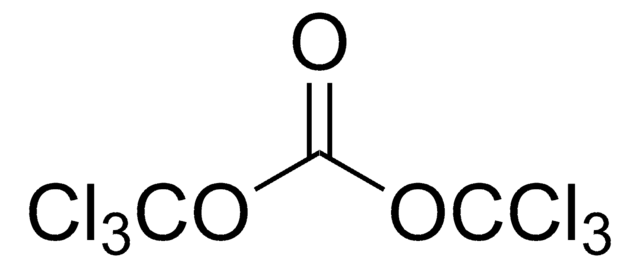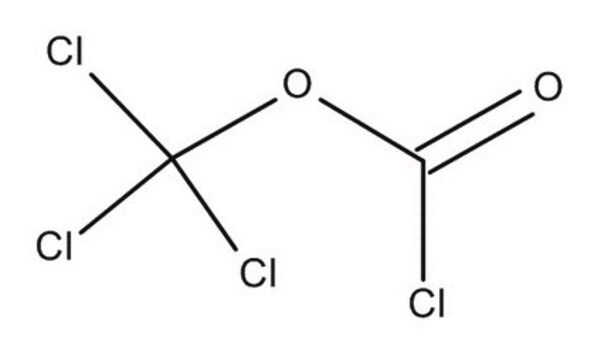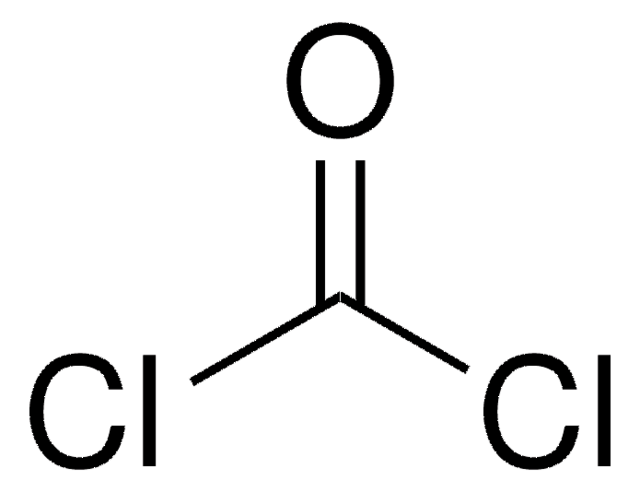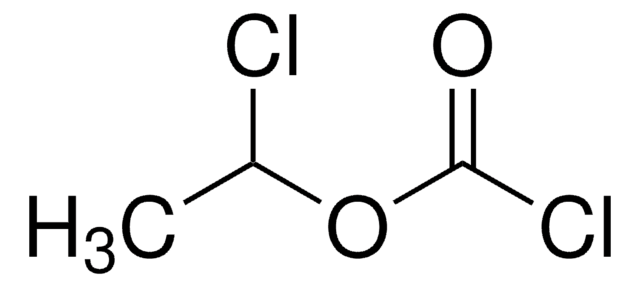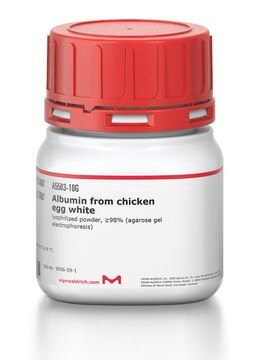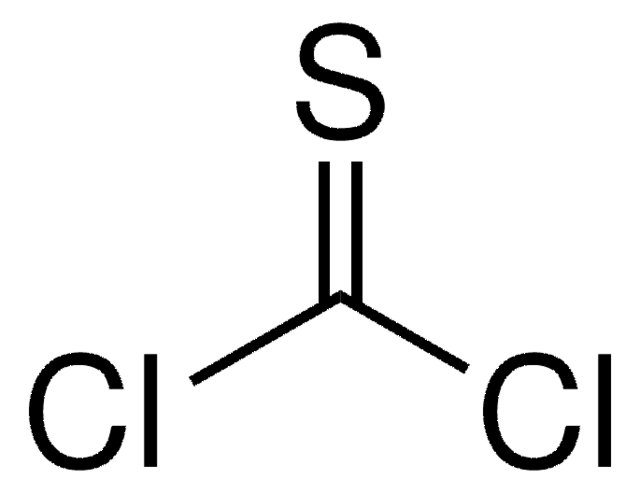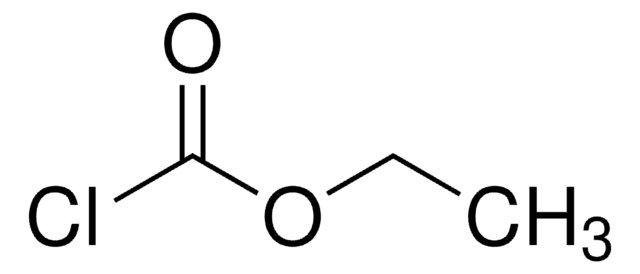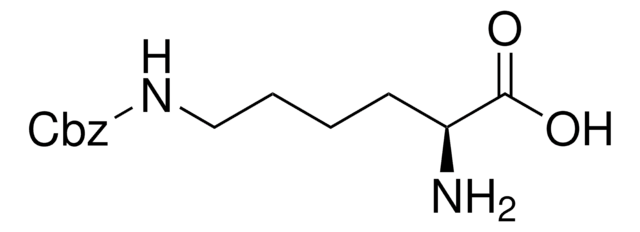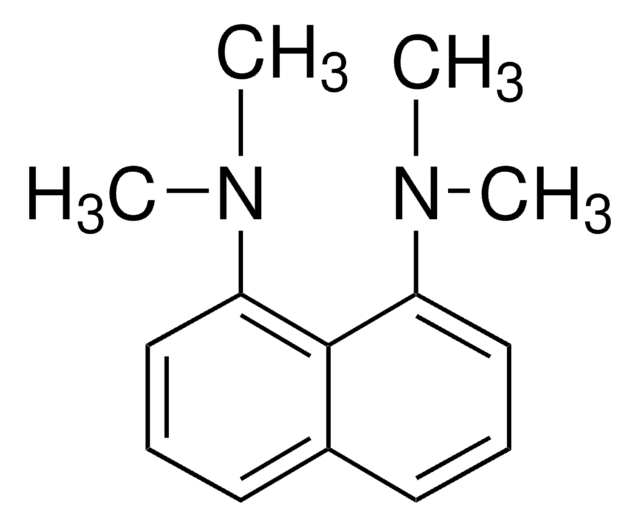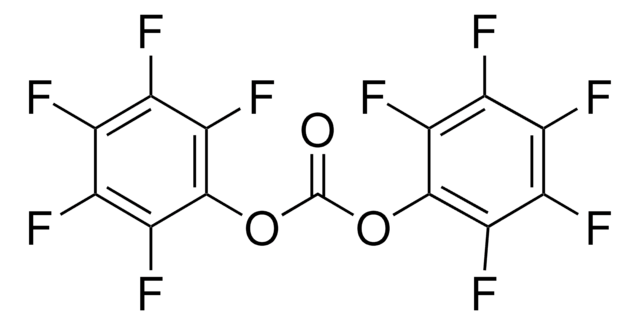23261
Trichloromethyl chloroformate
≥97.0% (GC)
Synonyme(s) :
TCF, Diphosgene, di-Phosgene
About This Item
Produits recommandés
Niveau de qualité
Pureté
≥97.0% (GC)
Indice de réfraction
n20/D 1.458
Point d'ébullition
20 °C/10 mmHg (lit.)
Densité
1.639 g/mL at 20 °C
Groupe fonctionnel
chloro
Température de stockage
2-8°C
Chaîne SMILES
ClC(=O)OC(Cl)(Cl)Cl
InChI
1S/C2Cl4O2/c3-1(7)8-2(4,5)6
Clé InChI
HCUYBXPSSCRKRF-UHFFFAOYSA-N
Vous recherchez des produits similaires ? Visite Guide de comparaison des produits
Application
- Cyclic carbamimidates using a monophosphine gold(i) catalyst
- N-Alkenyl and cycloalkyl carbamates as dual acting histamine H3 and H4 receptor ligands
- Prostate-specific membrane antigen-targeted anticancer prodrugs
- Potential west nile virus protease inhibitors
- Antibody-drug conjugates (ADCs)
- Erythromycin A derivatives
TCF can also be used:
- To synthesize N-carboxy α-amino acid anhydrides.
- As an acylating agent to synthesize oxazolidinones from α-amino alcohols.
- As a dehydrating agent to synthesize aromatic diisocyanides in the presence of triethylamine.
Autres remarques
Mention d'avertissement
Danger
Mentions de danger
Classification des risques
Acute Tox. 2 Inhalation - Acute Tox. 4 Oral - Skin Corr. 1B
Code de la classe de stockage
6.1B - Non-combustible acute toxic Cat. 1 and 2 / very toxic hazardous materials
Classe de danger pour l'eau (WGK)
WGK 3
Point d'éclair (°F)
Not applicable
Point d'éclair (°C)
Not applicable
Équipement de protection individuelle
Faceshields, Gloves, Goggles, type ABEK (EN14387) respirator filter
Faites votre choix parmi les versions les plus récentes :
Déjà en possession de ce produit ?
Retrouvez la documentation relative aux produits que vous avez récemment achetés dans la Bibliothèque de documents.
Les clients ont également consulté
Notre équipe de scientifiques dispose d'une expérience dans tous les secteurs de la recherche, notamment en sciences de la vie, science des matériaux, synthèse chimique, chromatographie, analyse et dans de nombreux autres domaines..
Contacter notre Service technique